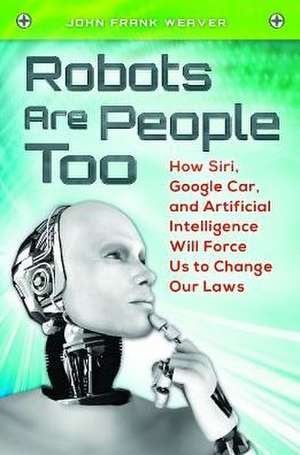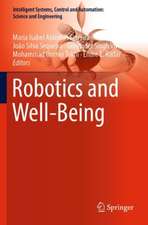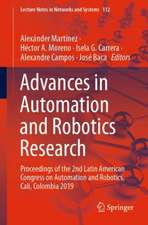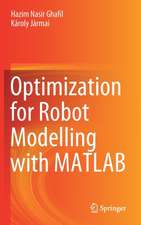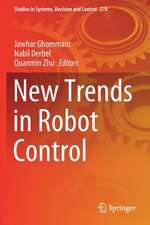Robots Are People Too: How Siri, Google Car, and Artificial Intelligence Will Force Us to Change Our Laws
Autor John Frank Weaveren Limba Engleză Hardback – 25 noi 2013 – vârsta până la 17 ani
Preț: 322.49 lei
Preț vechi: 481.95 lei
-33% Nou
Puncte Express: 484
Preț estimativ în valută:
61.73€ • 67.07$ • 51.89£
61.73€ • 67.07$ • 51.89£
Carte tipărită la comandă
Livrare economică 21 aprilie-05 mai
Preluare comenzi: 021 569.72.76
Specificații
ISBN-13: 9781440829451
ISBN-10: 1440829454
Pagini: 248
Dimensiuni: 156 x 235 x 23 mm
Greutate: 0.54 kg
Editura: Bloomsbury Publishing
Colecția Praeger
Locul publicării:New York, United States
ISBN-10: 1440829454
Pagini: 248
Dimensiuni: 156 x 235 x 23 mm
Greutate: 0.54 kg
Editura: Bloomsbury Publishing
Colecția Praeger
Locul publicării:New York, United States
Caracteristici
Focuses on devices that are already in use to illustrate where the law falls short in governing artificial intelligence and how legal models should be amended
Notă biografică
John Frank Weaver is an attorney with McLane, Graf, Raulerson, and Middleton in Portsmouth, NH.
Cuprins
AcknowledgmentsPart I May a Robot Hurt a Human Being?1 It's Not What Isaac Asimov Promised, but Artificial Intelligence Is Here2 How to Sue a Robot: Liability and AIPart II Must a Robot Obey Orders from a Human Being?3 The Uniform Artificial Intelligence Act and the Regulation of AI4 In Robots Parentis: When Robots Have Custody of a Child (or an Adult)5 RIMBY (Robots in My Backyard)6 AI and the Fourth Amendment7 The Forthcoming United Nations Conventions on Artificial IntelligencePart III Will a Robot Protect Itself?8 What Does a Robot Own?9 Can AI Be Good for Us?NotesIndex
Recenzii
In this timely book, organized according to Isaac Asimov's 'Three Laws of Robotics,' introduced in 1942, Weaver (attorney) discusses the current and possible future roles of robots and related technologies, and explores the legal aspects of those developments. . . . Recommended.
getAbstract recommends Weaver's informed and sobering consideration of AI to anyone who follows technological trends, economics, and future visions of society. It will also intrigue entrepreneurs, investors, and those working in defense and automotive fields, manufacturing, shipping, medicine or home care.
getAbstract recommends Weaver's informed and sobering consideration of AI to anyone who follows technological trends, economics, and future visions of society. It will also intrigue entrepreneurs, investors, and those working in defense and automotive fields, manufacturing, shipping, medicine or home care.
